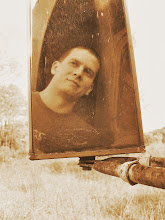In 2 Samuel 9, David is the newly crowned king of Israel, the nation’s enemies have all been put down, and God has promised to bless David and his house forever. Things could not be going better for David.
The story is quite different, however, for the household of Saul, Israel’s former royal line. All the closest relatives of Saul have been killed either by Israel’s enemies or by treacherous men with whom they had surrounded themselves. In all the family of Saul, one lone man is left: Saul’s grandson, the son of Jonathon, named Mephibosheth. But it is even worse than that; Mephibosheth was lame. Not that he wasn’t hip; no, he actually was the victim of a childhood accident that left him without the use of either of his feet.
One could wonder, then, considering the contrast between these two families, what it would take to bring them together. This question will only be heightened by an understanding of the culture of the day. In times when monarchy is the prevailing form of government, the role of king is understandably very desirable to people. This position, however, is generally established by heritage: namely, by relation to the previous ruler. But, on the few occasions that a king is overthrown by someone outside his family, it was common political practice to eliminate the competition, so to speak, by executing the entire royal family.
One can imagine, knowing this, the amazement David’s counselors must have felt when they heard him ask one day, “Is there not still someone of house of Saul, to whom I may show the kindness of God?” (2 Samuel 9:3)
I think the key to this question is in the way David describes this kindness. It is “the kindness of God.” David recognizes that the kindness that has been shown him is from God; and he desires to show that kindness to the son of his friend Jonathon, even though the world would tell him to do the opposite. David’s actions are not based on the culture around him but on the way he has seen God act. And David tries to mirror those actions.
This is important to remember. It is, in fact, the core of following Christ: to be like Him, to display Him, to show His kindness.
But I feel David is not the only character in this story from whom we may learn something. When Mephibosheth is finally tracked down and brought before the king, David reveals to him that he is to be an honored and permanent guest at his table. Mephibosheth responds, “What is your servant, that you should look upon such a dead dog as I?” (2 Samuel 9:8)
Here was a man who knew that he was pitiful. He knew what most people would do to him in that situation, and he knew that nothing he could say would alter his fate. That is the way we must all accept the kindness of God. There is nothing we could do to deserve it. There is nothing we could do to get it on our own. We are as disgraceful as dead dogs, but He gives us grace anyway.
That is the Kindness we must show. For, that is the Kindness we have been shown.

No comments:
Post a Comment